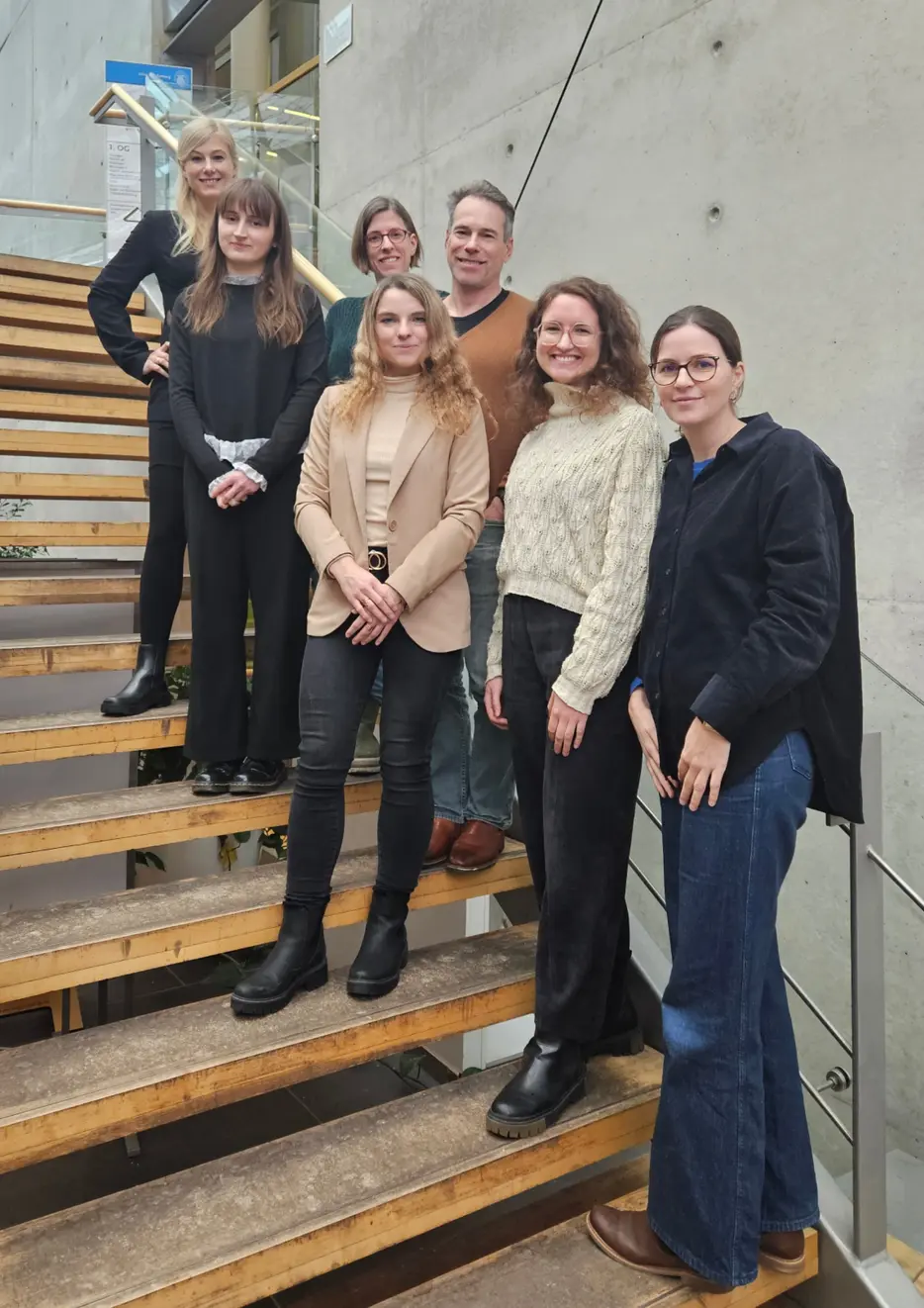English Language Education
A very warm welcome to the world of TEFL – Teaching English as a Foreign Language!

(from left to right: Michelle Zirkel, Rebecca Flämig, Katrin Bauer, Martina Ebenberger, Andreas Müller, Claudia Schnellbögl, Theresa Summer)
In the following you will find the subpages of our homepage:
TEFL at the University of Bamberg
The Department of English Language Education or TEFL (Teaching English as a Foreign Language) engages with central theoretical, practical, and research-based developments in the field of English language education. By engaging in (inter)national research and adopting an interdisciplinary perspective, we aim to develop key skills and competencies in future English language educators. We offer an interactive introductory seminar for all of our students as well as thematic and practice-oriented courses. These address key issues in the teaching and learning of English, such as:
- learning English through virtual reality / AI
- global learning, ESD
- lesson planning
- songs and poetry
- critical literacy
- teaching English at primary schools
- grammatical competence
- and many more
In internships and preparatory courses, we support pre-service teachers during their first encounters with English language education across different types of schools.
In our research, we address a variety of issues. Two of our current research projects include:
- DiSo-SGW in which we are part of a project consortium that aims to develop, test, and implement research-based training programs for teachers focusing on the development of digital competence.
- ELT Survey in which we investigate learners’ perspectives on English lessons
![[Translate to English:] [Translate to English:]](/fileadmin/_processed_/6/1/csm_TEFL-transparent_818f630133.png)






